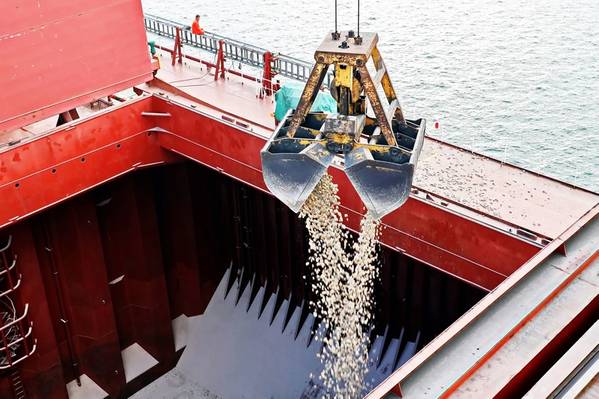
The Baltic Exchange's main dry bulk sea freight index eased from a more than 11-year high on Tuesday, but the index notched up its second monthly gain in three due to global shipping constraints and robust demand.
The overall index, which factors in rates for capesize, panamax, supramax and handysize vessels, declined 103 points, or 2.4%, to 4,132.
It rose 25.5% in August, boosted by the closure of China's Ningbo port, which caused congestion across the country's coastal regions and limited the global supply of vessels.
The capesize index fell 243 points, or 3.9%, to 5,919. The index has gained 37.5% in August.
Average daily earnings for capesizes, which transport 150,000-tonne cargoes such as iron ore and coal, declined by $2,010 to $49,089.
The panamax index fell 93 points, or 2.4%, to 3,781. It rose 14.4% this month.
Average daily earnings for panamaxes, which usually carry coal or grain cargoes of about 60,000 tonnes to 70,000 tonnes, decreased by $842 to $34,028.
Among smaller vessels, the supramax index rose 7 points to an all-time high of 3,477, its best month since Feburary, and rose about 18.1% this month.
(Reporting by Rahul Paswan; Editing by Ramakrishnan M.)




